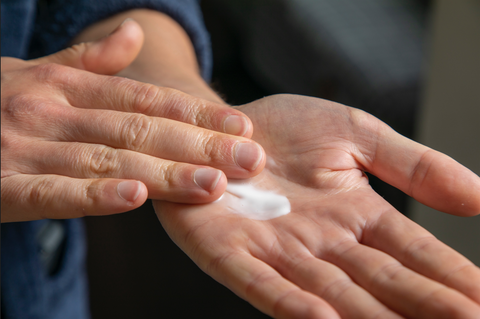
Skincare 101: How to Care for Your Baby’s Skin
Oh, babies! Don’t we all just love to kiss and nibble on their soft, smooth skin? However, did you know that a baby’s skin is way more sensitive than ours and therefore needs more caring? In fact, their skin is so much thinner than ours. This makes them more prone to bacteria and even allergens, which is why babies usually get bumps and rashes. One upside to the necessary skincare your baby needs? A mother’s touch not only helps soothe and calm a baby’s sensitive skin, it also aids in their development.
If you’re a parent of babies, kids, and toddlers, we rounded up some tips on how you can better care for their skin. Read on to find out more.

Dilemma: “Help! What products should I look out for my little one?”
Have you heard of the saying that “less is more”? Well, this holds true in the case of baby skin products. For example, it is best to look out for products that do not contain dyes, fragrances, and preservatives. Since a baby’s skin is much thinner, it tends to absorb more product. This is why we should avoid using products with harsh ingredients and actually choose those with the fewest ingredients in them.

Dilemma: “Help! Is it okay if my little one has daily sun exposure for his daily dose of Vitamin D?”
Sun exposure is a very tricky factor in one’s overall skin health. Take Dr. Mir’s statement in an interview with Reece (2022) for example, "The damage done by the sun in the first 18 years of life sets the stage for your child's skin-cancer risk when they get older," he stated. This is why parents should always be conscious of their little one’s exposure to the sun.
For babies under 6 months, it would be best to keep them out of the sun. If it can’t be helped, however, always remember to apply sunscreen with at least SPF30 on their skin.
As for little ones 6 months and up, it is ideal to go out between the hours of 7am to 10am when the sun is still not harsh. During the hours outside of that timeframe, applying sunscreen 15 to 30 minutes before going outdoors and reapplying every two hours especially when they’re active and sweating should help.

Dilemma: “Help! My baby has eczema.”
One of the most common reasons why parents take their children to the dermatologist is because of eczema or atopic dermatitis, which causes patches of dry and itchy skin. According to Dr. Kenner-Bell in an interview with Reece (2022), “Now we suggest taking short daily baths because we've learned that this helps keep moisture in.” Adding that a daily 10-minute quick shower is ideal.
After bathing, it is best to apply any prescribed topical eczema cream and put on lotions or moisturisers to help seal the moisture in. "This provides an added barrier not only to help retain moisture in the skin but also to protect it from irritating substances that it might come in contact with," Dr. Chu in the same interview with Reece (2022) further explained.

Dilemma: “Help! Is lotion really necessary or just an optional skincare step?”
Yes! Even babies and children with healthy skin should always use lotions and moisturisers. According to Dr. Kirkorian in an article written by Reece (2022), applying moisturisers once a day after bathing can maintain and even help improve one’s overall skin health. He further added that parents tend to apply too little moisturiser and stated that “your child's skin should be bright, glistening, and shiny when you're done." Yep, THAT much moisturiser is recommended and highly encouraged by pediatric dermatologists.
We hope that the answers to all these common parental dilemmas regarding baby skincare helped you guys. However, we should always remember that our babies all have different skin types and that we should look out for signs and always patch test new products we want to introduce to them first.
To end this guide, here’s a little fun fact that we thought all parents should know about.

Unscented vs Fragrance-Free
Did you know that there is a difference between unscented and fragrance-free? That’s right, unscented does not necessarily mean fragrance-free. An unscented product contains a masking fragrance, which is used to hide the chemical scent of the ingredients. In addition to this, pediatric dermatologist at the Philadelphia Children’s Hospital Dr. Patrick McMahon, M.D stated in a research by Reece (2022) that, "Masking fragrances could still be irritating for some children, so always look for 'fragrance-free' on the packaging."
P.S. Nature to Nurture Fragrance-Free products were created for babies, toddlers, kids, and even adults with very sensitive skin in mind.

Sources:
https://www.parents.com/health/smart-ways-to-protect-your-childs-skin/
https://www.parents.com/baby/care/skin/how-to-care-for-baby-skin
/https://www.webmd.com/parenting/baby/skin-care-tips

